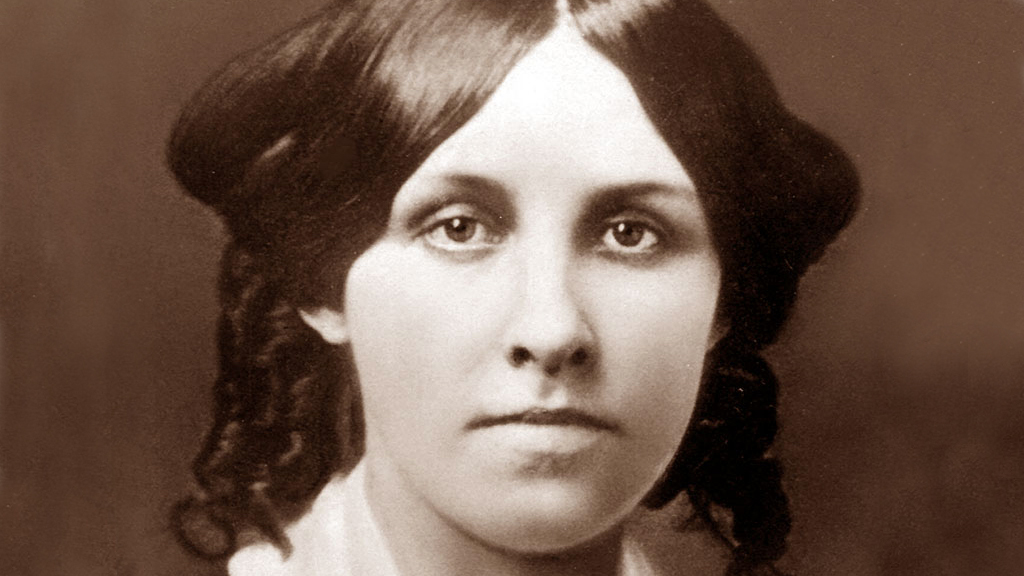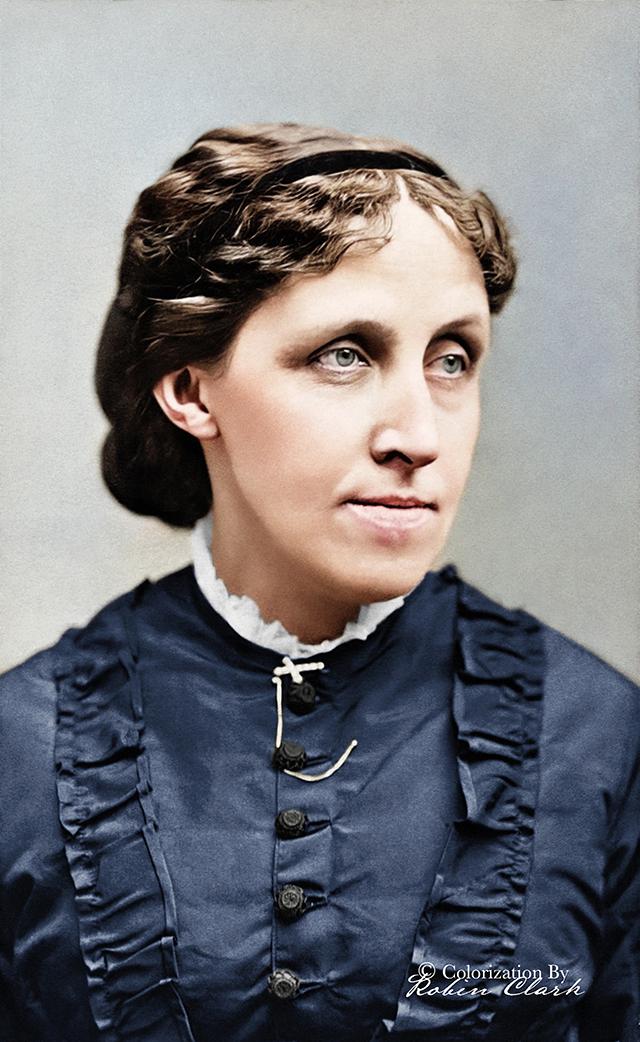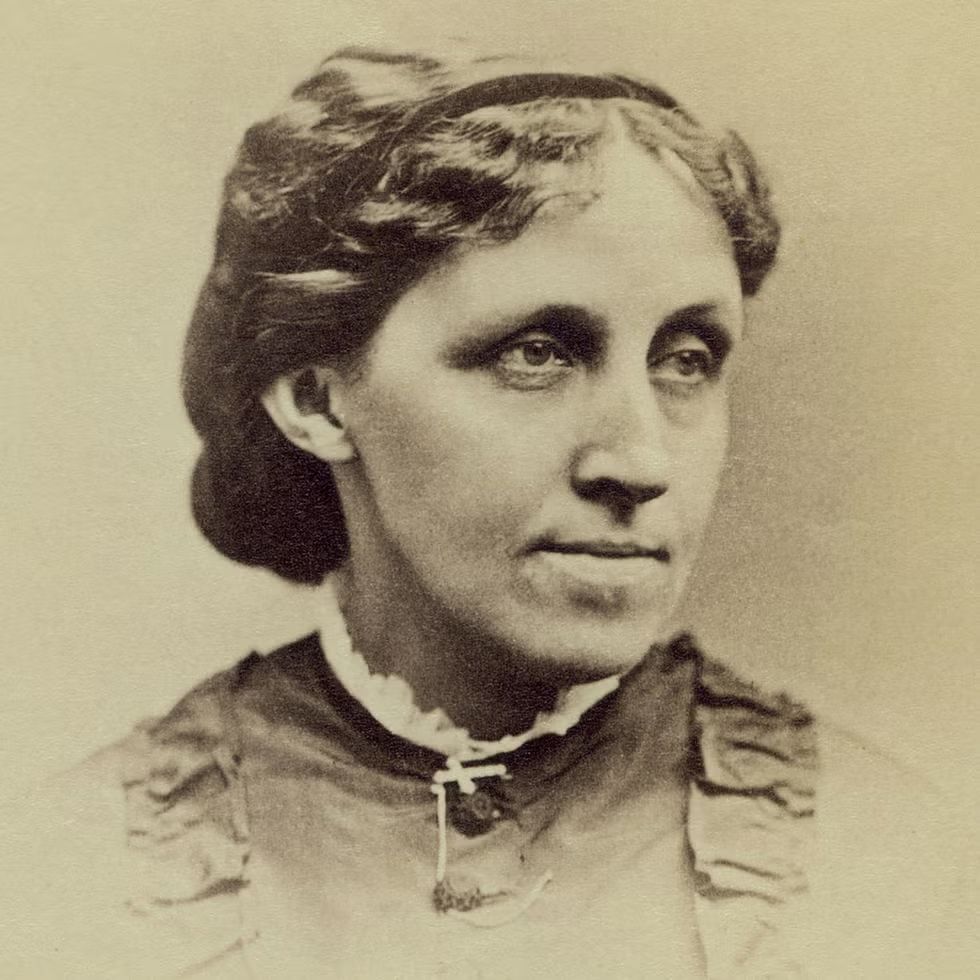Louisa May Alcott

Biography
Before Little Women was a literary classic, it was just the lived experience of a sharp, passionate girl from a not-so-wealthy family with big dreams and even bigger grit. Louisa May Alcott was born in 1832 in Philadelphia but grew up in Boston and Concord, Massachusetts, surrounded by some of the brightest minds of the 19th century—Ralph Waldo Emerson, Henry David Thoreau, and her own father, Bronson Alcott, a radical educator who believed kids should actually enjoy learning. Her family was all in on the Transcendentalist movement (think: nature, self-reliance, and questioning the system), but despite their ideals, they were constantly broke. So Louisa picked up her pen and hustled—for her family, for her future, and for herself.
Louisa wrote thrillers under the pen name A.M. Barnard, cleaned houses, and taught school, all while secretly dreaming of being a writer. Her early poetry and stories slowly gained traction, but it was her time working as a nurse during the Civil War—and catching typhoid pneumonia in the process—that cracked something open. Her book Hospital Sketches, based on that painful and powerful experience, became her first major success. From there, she didn’t stop. Even when the literary world told her she couldn’t make it, she responded by proving them wrong, one published page at a time.
Then came the book that would make her name last forever. Asked to write a story for young girls, Louisa turned to what she knew best: growing up with three sisters, laughing through the chaos, and finding joy even in struggle. Little Women wasn’t just a hit, it was a cultural shift. Readers saw themselves in Jo, Meg, Beth, and Amy. They saw bravery that didn’t wear armor, ambition that didn’t apologize, and womanhood that wasn’t one-size-fits-all. It was a love letter to sisterhood, sacrifice, and strong girls with stories worth telling.
Alcott could’ve stopped there—but she didn’t. She kept writing, kept fighting. She marched with the women’s suffrage movement, registered to vote in Concord before most women even thought it was possible, and used her platform to push for equality and justice. She believed women deserved choices, voices, and power—not just in fiction, but in real life. Though she never married or had children of her own, she adopted her niece Lulu after her sister’s death and kept writing books for children, even as her health declined.
Louisa May Alcott died in 1888, just two days after her father. She was only 56, but she left behind more than 270 works and an unstoppable legacy. Her words gave working-class girls and ambitious women a place in literature when few others would. She showed that stories could be both beautiful and rebellious, soft and strong. And most of all, she proved that even in a world that says 'no,' you can still write yourself into history with a resounding 'yes.'
Louisa May Alcott wasn’t supposed to be a literary icon. She was supposed to marry. Keep house. Stay in the background. Instead, she wrote books that made generations of girls feel seen. She challenged gender roles, rejected societal norms, and created a legacy of independent, curious, creative women in literature. Her success was never just about books—it was about power, permission, and possibility. Alcott’s legacy asks: What if we stopped waiting for the world to let us speak, and just picked up the pen?
?
Why do you think Alcott initially resisted writing Little Women? What does that say about her view of girlhood and literary expectations?
How did Alcott’s work as a Civil War nurse shape her later writing?
What do Alcott’s pseudonymous thrillers reveal about the kinds of stories women were allowed to tell in the 19th century?
How did Louisa May Alcott's life reflect the struggles and triumphs of Jo March?
Why is Alcott’s role in the women’s suffrage movement often overlooked, and how can we reclaim it?
Dig Deeper
A revealing look at Louisa May Alcott’s life, activism, and the untold story of how her radical ideas shaped one of the most cherished books in American literature.
Discover more

Ida B. Wells-Barnett
Ida B. Wells-Barnett was a fearless journalist and civil rights leader who exposed the truth about racial violence and demanded justice.

Helen Keller
Helen Keller overcame the isolation of being both deaf and blind to become a world-renowned author, speaker, and advocate for disability rights, women’s suffrage, labor rights, and social justice.

Harriet Tubman
Harriet Tubman escaped slavery and then risked her life at least 13 more times to guide about 70 people to freedom on the Underground Railroad—earning the nickname "Moses".
Further Reading
Stay curious!

